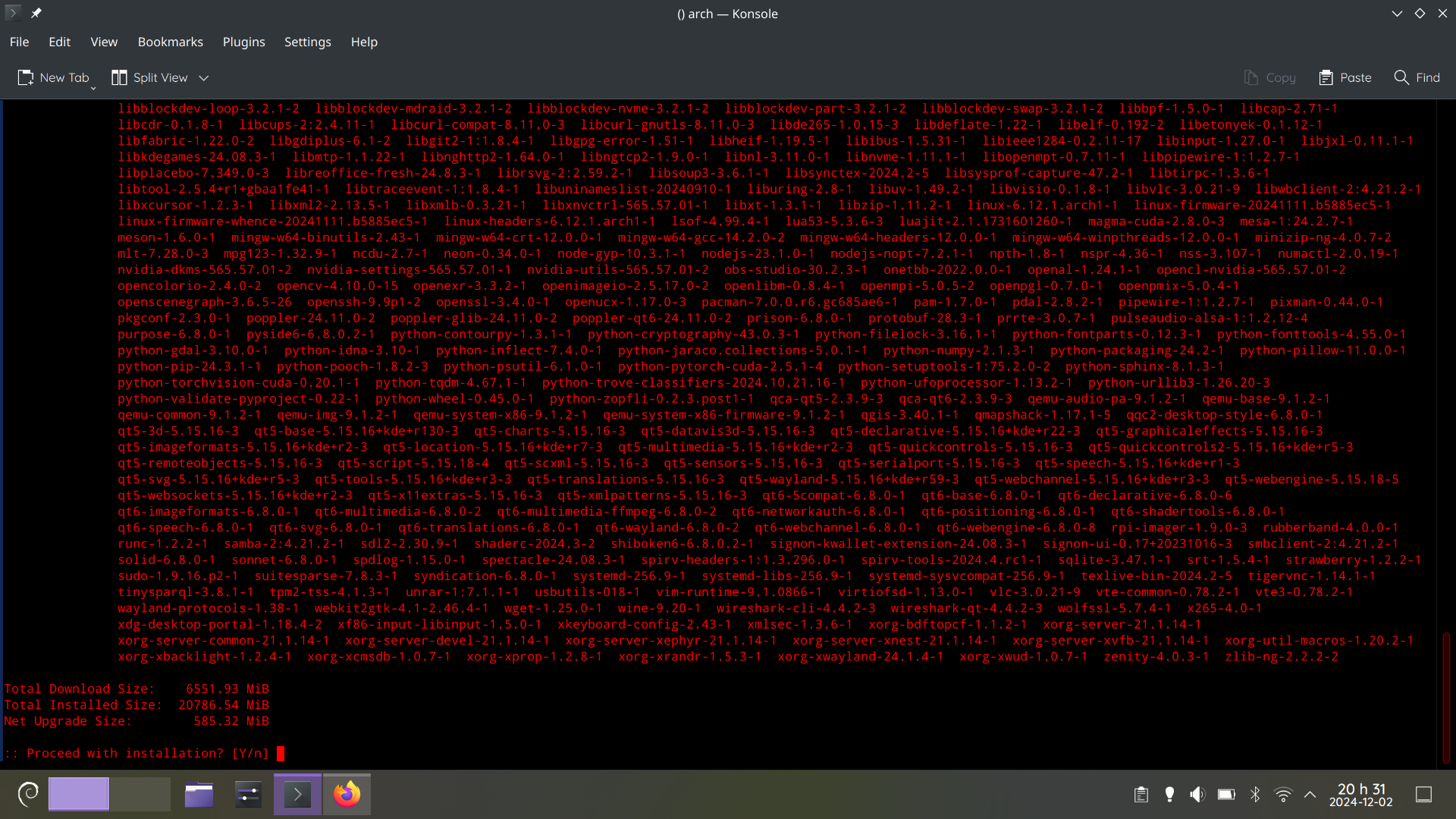You see, this is why atomic desktops aren't a bad idea.
Linux
From Wikipedia, the free encyclopedia
Linux is a family of open source Unix-like operating systems based on the Linux kernel, an operating system kernel first released on September 17, 1991 by Linus Torvalds. Linux is typically packaged in a Linux distribution (or distro for short).
Distributions include the Linux kernel and supporting system software and libraries, many of which are provided by the GNU Project. Many Linux distributions use the word "Linux" in their name, but the Free Software Foundation uses the name GNU/Linux to emphasize the importance of GNU software, causing some controversy.
Rules
- Posts must be relevant to operating systems running the Linux kernel. GNU/Linux or otherwise.
- No misinformation
- No NSFW content
- No hate speech, bigotry, etc
Related Communities
Community icon by Alpár-Etele Méder, licensed under CC BY 3.0
This is why I Dont use rolling release Distros on Pcs i wont use often.
Because you get updates and have an up to date system?
Because you get a update once a update for a package comes out, If you dont update for a very long time you need to download a very large update.
I used to care but with recovery tools being what they are and most apps being containers... my base systems tend to be a little more disposable.
That said, I haven't had problems, even if I am at risk for more of them. I have my snapshots and my backups.
Remembers Tumbleweed fondly
Would you recomend it for daily usage?
I used Tumbleweed for eight years with no problems. I only moved to EndeavourOS because Suse bared their corporate teeth and I got fed up being a couple of generations behind on the Nvidia drivers. EndeavourOS is also good.
Used tumbleweed for ages. No issues. Switched to slowroll again with no issues. Now trying fedora. All with Kde plasma.
Got busy and didn't update my template for awhile. Machines would be instantiated a few minors back. 9.2 vs 9.4, for instance, but this was back in 7-land.
Updates would be about 600 packages, or most of the install.
Took 5 min, completely safe. Patch, bounce because we looked funny at dbus so it can't cope, and then good to go.
I used to tease my windows peer: he'd be still on "do not turn off your computer".
Nah, just update it.
Read the Arch news before clicking "yes".

I used to be an adventurer like you, but then I took an error to gpg.
Sheiiiiit, i had same thing, broke completely after update
😂 they always sneak a rotten little package into these big lists man
Sometimes I wish someone would make a an Arch box and come back to it years later to see the updates it has missed.
But that's assuming an Arch box would be reliable enough to stay alive that long lol.
Always heard of 20+ year old bsd and debian machines chugging along with no issue.
I have updated arch systems that had not been powered on for years before. It was fine. No issues what so ever. Arch is not some flaky distro that breaks if you look away for a minute. My main system has had had the same install for over 5 years now and I regularly forget to update it for months at a time. Again, no issues.
Yeah really the biggest issue I could see is pacman’s keyring being so out of date that it has to be manually refreshed with a new one
It won't rise much beyond that, since you only get one update per package. Whether it's upgrading Firefox from version 120 to 121 or to version 130, it doesn't change much in terms of download size, nor the number of updates.
At least, I assume, Arch doesn't do differential updates. On some of the slower-moving distributions, they only make you download the actual changes to the files within the packages. In that case, jumping to 121 vs. 130 would make more of a difference.
If you do want lots of package updates, you need lots of packages. The texlive-full package is always a fun one in that regard...
My arch install has been going strong for about 5 years now
I had that on a physical machine! It broke hardcore lol I had to reinstall the OS after trying to update
You wouldn’t believe the shit I’ve seen on internet connected production servers…
My personal prod systems never have many upgrades... But they're running Debian stable and I have unattended-upgrades installed and configured.
Those are rookie numbers.
To be fair, arch could look like that after a few days.
NixOS is like that every day for no reason
staging rebuild cycles only happen every two weeks or so.
The reason is always that something changed and causes all dependent packages to change, requiring a rebuild of those too.
Oh, you updated one byte in your config? Better download the entire ducking Internet and rebuild everything!
Is it Debian Sid?
arch linux, i'm sshed from my debian machine.

